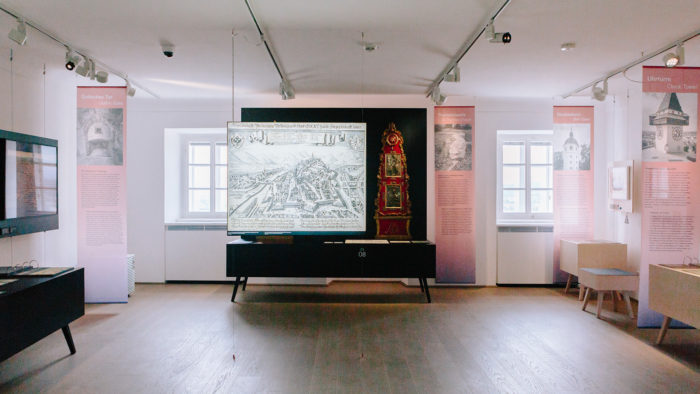
Jewish Life in Graz
The autumn exhibition of Graz Museum will be dedicated to the history of the Jewish population from the first documentary mention (1147 Styria, 1261 Graz) to the present day. It is aimed at conveying Jewish identity in all its diversity. This is a search for traces, as repeated eviction and destruction of Jewish life has finally led to multiple deletions concerning this part of the history of Graz. Thus, the exhibition sets out on a search for Jewish people, rooms and living conditions. It feels out what it actually means to be Jewish and to live a Jewish life in Graz. What did Jewish life look like in past times and how is it expressed these days? How is and how was it present in the city? Which political, economic, cultural and religious factors are of influence on it?
The lives of Jewish citizens of Graz have been marked by arbitrariness and persecution as well as by community and diversity over the course of time. Significant topics are the daily routine in the Medieval town and the evictions which led to a long absence of Jewish life (“Judensperre” – ban on Jews) until the 19th Century. Followed by a gradual grant of rights allowing Jewish people to resettle in Graz and to build up an active community. All this is taking place within an atmosphere of an increasing aggressively expressed Antisemitism with its discharge in the November pogrom (Novemberpogrom) in 1938, which initiates the acquisition and destruction of Jewish living environments and, finally, results in the eviction and murder of Jewish citizens of Graz. After WWII, the return of Jewish people to Graz, the rebuilding of the community and the coping with history are focused on.
Curator: Martina Zerovnik
Project management: Bernhard Bachinger
Curatorial assistance: Martin Hammer
Scientific support: Gerald Lamprecht
Project management cultural education: Julia Baier
Project Controlling: Sibylle Dienesch
Exhibition design and graphic: Robert Rüf & Larissa Cerny, Martin Embacher
In cooperation with the Jewish community in Graz and the Center for Jewish Studies Graz.




